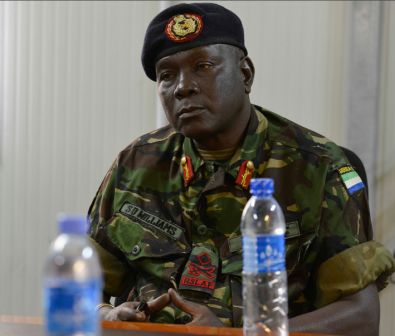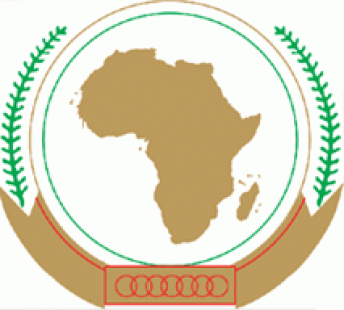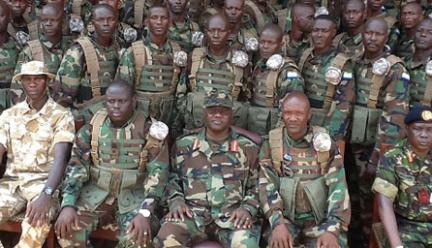Somalia: Latest Report Highlights Window For Peace
Branded a ‘failed state’, the Somali Region has become known for kidnappings of international aid workers, being the training ground for terrorists, and a base for piracy operations and its recurrent humanitarian crisis. This common view overshadows a different dynamic on the ground: a population that is gradually redefining their context and mobilizing behind the need for peace. Also overlooked are recent positive developments that give rise to cautious optimism that the Somali Region may be close to a breakthrough to peace.
Mogadishu, considered one of the most dangerous cities in the world, was the venue for the launch of a report packed with insights into Somali efforts to build peace.
Interpeace local partner, the Center for Research and Dialogue (CRD), presented the findings from research that gathered input from over 500 Somalis in the report In Pursuit of Peace – Challenges and Opportunities in the Central Regions. Over 200 people including members of the Transitional Federal Government (TFG), Ministers, regional administration representatives, members of the business community, civil society actors and representatives of international NGOs attended the launch.
“The release of this report could not be more timely. Recent months have seen significant improvements in the security situation in the Central Regions. The recovering of Mogadishu from the insurgent forces of Al Shabaab, were followed swiftly by the recapture of districts and regions further afield. The successes by the TFG and the African Union Mission in Somalia (AMISOM) have opened a window of opportunity for increased peacebuilding activities. These projects will help stabilize the recovered areas and restore stability,” explains Jabril Ibrahim Abdulle, Director of CRD.
Highlighting the importance of this window of opportunity, Jabril states: “It is crucial that we are seizing this opportunity. Somalis are enthusiastic to take back their country from the insurgents and rebuild their society. With the political transition process coming to an end and the possibilities presented by the improved security situation, we need to focus our efforts on strengthening locally-owned and locally-led reconciliation processes.”
Jabril goes on to highlight: “Conducting consultations and dialogue discussions with over 500 Somalis from South Mudug, Galgaduud and more recently Hiiraan, we have really been capturing the voices of the people. This is what’s unique about this study and these voices need to be heard in the peace process. We have been reaching out to stakeholders from different sectors of society. Of course we often faced difficult conditions due to the security situation in these regions but we have been engaging with political and business leaders, civil society actors, traditional elders and particularly with women, youth and other marginalized groups whose needs and contributions are often overlooked.”
Structured into three main sections, the report explores the Somali view of how to make social and political reconciliation processes effective, how to create legitimate local governance structures and how best to involve civil society actors. It goes on to identify what works and, perhaps more importantly, what does not work in both international and local peacebuilding initiatives.
The Director of the Interpeace Somali programme, Abdirahman Raghe, adds: “A key finding of the report is that the most successful and durable reconciliation and peacebuilding strategies are Somali-led with little or no external engagement. Encouraging external actors to build upon existing structures rather than creating new ones, is one of the recommendations stressed in this latest research document.”
Johan Svensson, Interpeace’s Regional Director for Eastern and Central Africa concludes: “With the recent optimism and eagerness of different actors to participate in peacebuilding and statebuilding processes, it is essential to capitalize on this momentum. It is key to find a middle ground, which meets local aspirations and needs, but also draws on support from federal government and international actors. As more and more areas are being recovered, international support needs to be rooted in the needs identified by local communities themselves and not imposed by external agendas. An approach that responds to the changed dynamics on the ground and is tailored to the specific needs of different regions and districts will be crucial for success.”
The report was produced as part of Interpeace’s flagship programme in the Somali Region, the Pillars of Peace programme. Launched in 2009, it is being implemented in partnership with Interpeace’s three local partner organizations in the region: the Academy for Peace and Development (APD), the Centre for Research and Dialogue (CRD) and the Puntland Development Research Center (PDRC). The Pillars of Peace programme seeks to advance the consolidation of peace in the Somali Region through consensus-oriented approaches to peacebuilding and statebuilding.
Interpeace.org
Stay with Sierra Express Media, for your trusted place in news!
© 2012, https:. All rights reserved.






